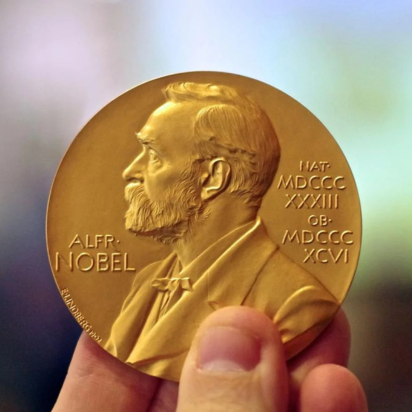The Nobel Prizes are like the Oscars of the world, recognising the brightest minds and bravest hearts. The 2025 Nobel Prize winners have been announced. The Junior Age has all the details for you! Let us break down who they are, what they discovered, and why their work matters, perfect for curious minds like yours.
Meet the Nobel Prize 2025 Winners:
Each of these laureates has made significant contributions to their respective fields, impacting our understanding of science, literature, and global peace. Their work not only advances knowledge but also inspires future generations to pursue excellence and make a positive difference in the world.
1. Nobel Prize 2025 in Physiology or Medicine – Mary E. Brunkow, Fred Ramsdell, and Shimon Sakaguchi
These three scientists were honoured for discovering how our immune system tells the difference between harmful invaders and our own body cells. Their work centres on regulatory T cells, or Tregs, which act like peacekeepers inside our immune system.
When Tregs work properly, they stop our immune cells from attacking healthy tissues, preventing autoimmune diseases such as diabetes or multiple sclerosis. But when they malfunction, the body can turn against itself. Mary E. Brunkow, Fred Ramsdell, and Shimon Sakaguchi’s research has completely changed how doctors understand immunity, helping scientists design smarter treatments for cancer, organ transplants, and chronic illnesses. It is a discovery that could help millions live healthier lives.
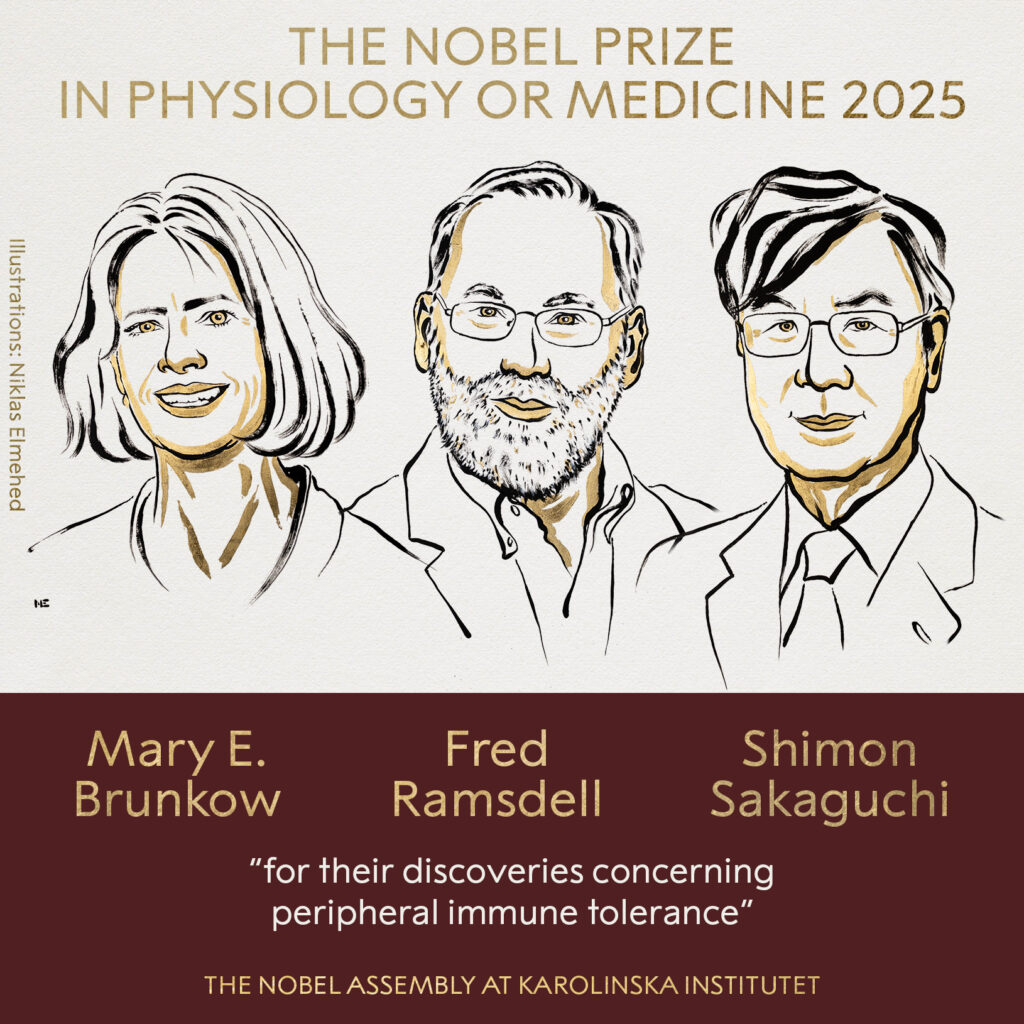
2. Nobel Prize 2025 in Physics – John Clarke, Michel H. Devoret, and John M. Martinis
Imagine computers so powerful that they can solve problems in seconds that would take today’s fastest machines centuries. That is the dream of quantum computing, and these three physicists brought us a step closer.
John Clarke, Michel H. Devoret, and John M. Martinis’s experiments proved that quantum mechanics, the strange science of atoms and particles, can be observed and controlled in larger, visible systems. This opened new doors to developing quantum technologies, such as ultra-precise sensors and lightning-fast quantum chips. Their research blends science and imagination, showing how the tiniest particles in the universe could transform the way we communicate, store information, and explore space in the future.
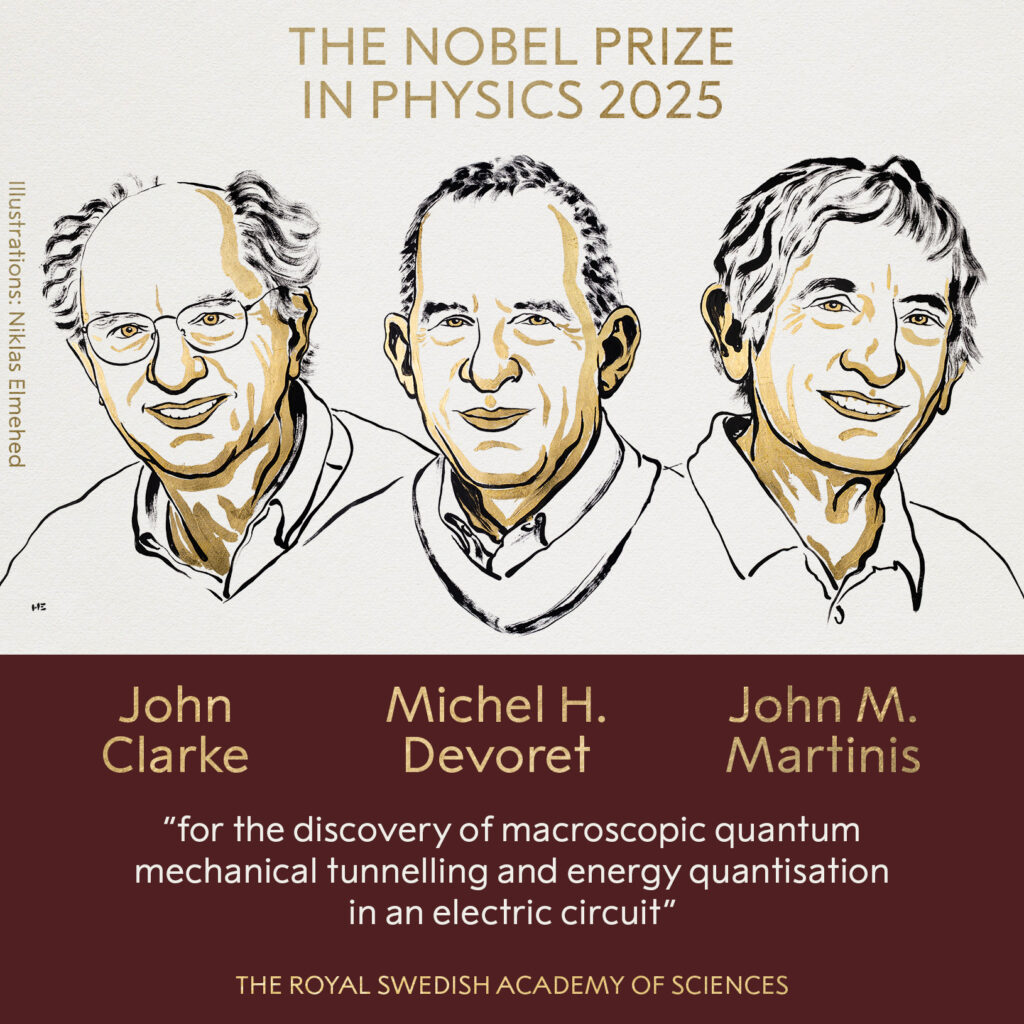
3. Nobel Prize 2025 in Chemistry – Susumu Kitagawa, Richard Robson, and Omar M. Yaghi
The world is full of gases, metals, and molecules, and these three chemists figured out how to trap and use them in a brilliant new way. Susumu Kitagawa, Richard Robson, and Omar M. Yaghi developed Metal-Organic Frameworks (MOFs) materials so porous that they can capture and hold huge amounts of gas or water.
They are like microscopic sponges, with millions of tiny holes that can filter the air or pull moisture from desert air. MOFs could help solve global challenges like water shortages and climate change by capturing carbon dioxide from the atmosphere and creating cleaner energy systems. Their invention proves that chemistry is not just about formulas; it is about saving the planet, one molecule at a time.
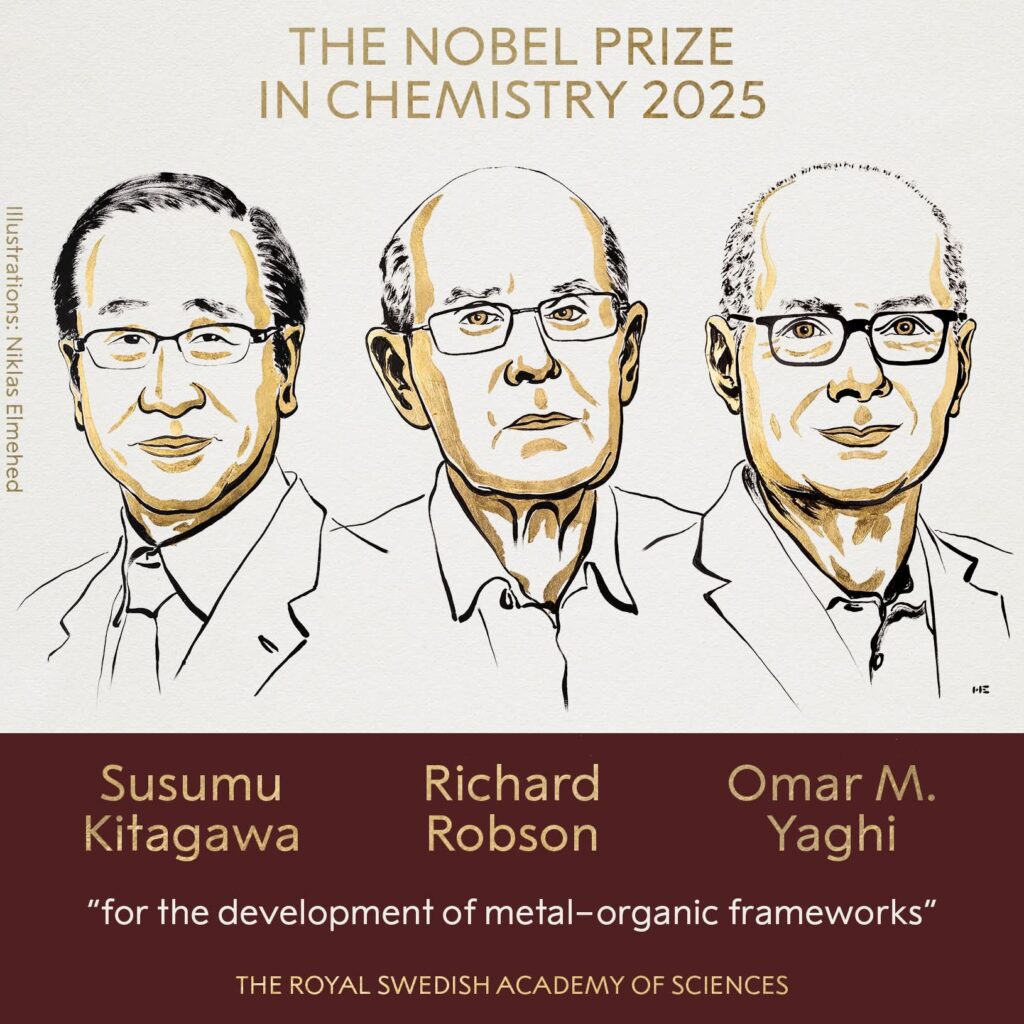
4. Nobel Prize 2025 in Literature – László Krasznahorkai
The 2025 Nobel Prize in Literature went to Hungarian author László Krasznahorkai, known for his poetic and thought-provoking storytelling. His novels explore the chaos and beauty of human life, often set in mysterious or crumbling worlds.
One of his most famous works, Satantango, follows a small village caught in endless rain and moral decay, written in long, flowing sentences that read like musical scores. He was praised for his visionary intensity and ability to portray the fragility of civilisation. His writing reminds us that even in despair, there is beauty, and that stories can help us understand both ourselves and the world around us.
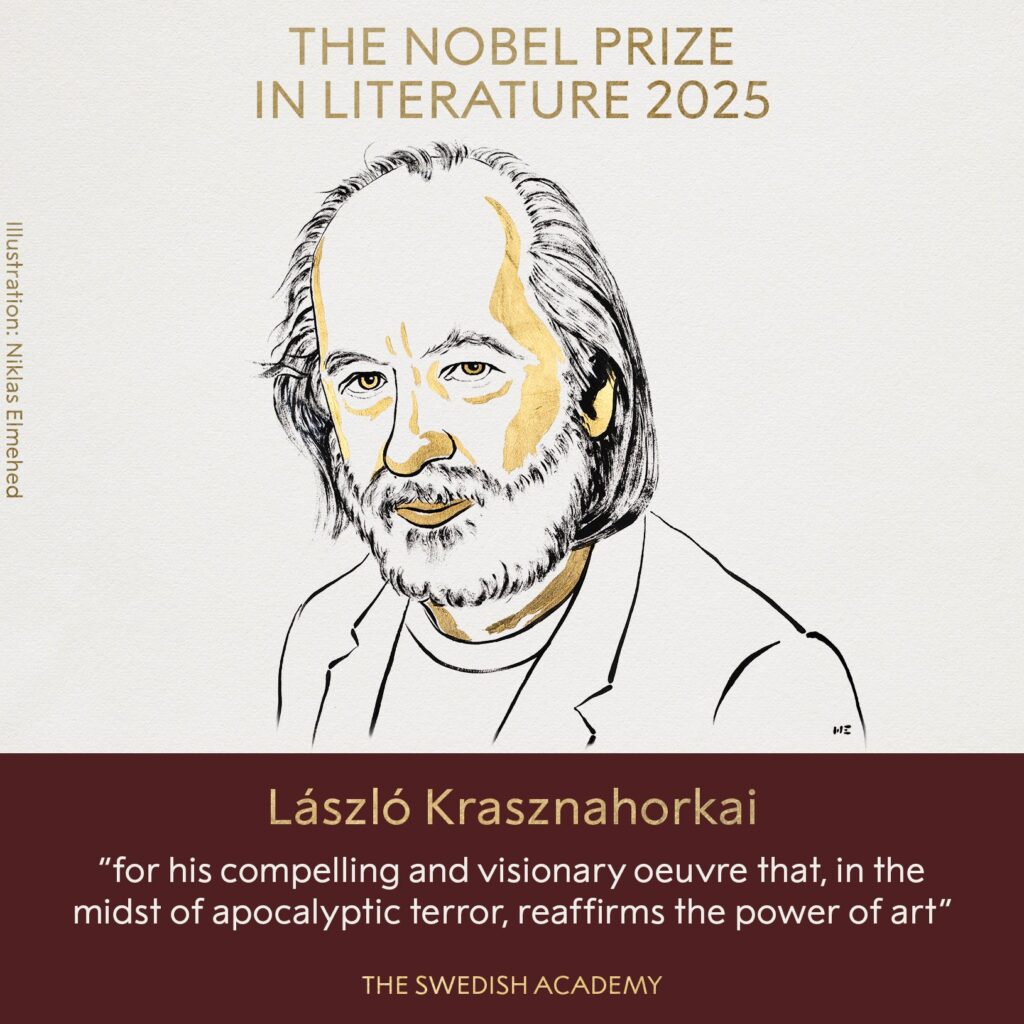
5. Nobel Peace Prize 2025 – María Corina Machado
The Peace Prize this year shines a spotlight on María Corina Machado, a brave Venezuelan leader who has spent years fighting for democracy, human rights, and freedom of speech in her country.
Despite facing political bans, threats, and intimidation, Machado has continued to campaign peacefully for fair elections and justice. Her courage and persistence symbolise hope for millions living under oppressive regimes. The Nobel Committee honoured her for her tireless work promoting democratic rights for the people of Venezuela and her struggle for a just and peaceful transition to democracy. Her win reminds the world that peace doesn’t just mean silence; it means courage, truth, and standing up for what is right, even when it’s hard.
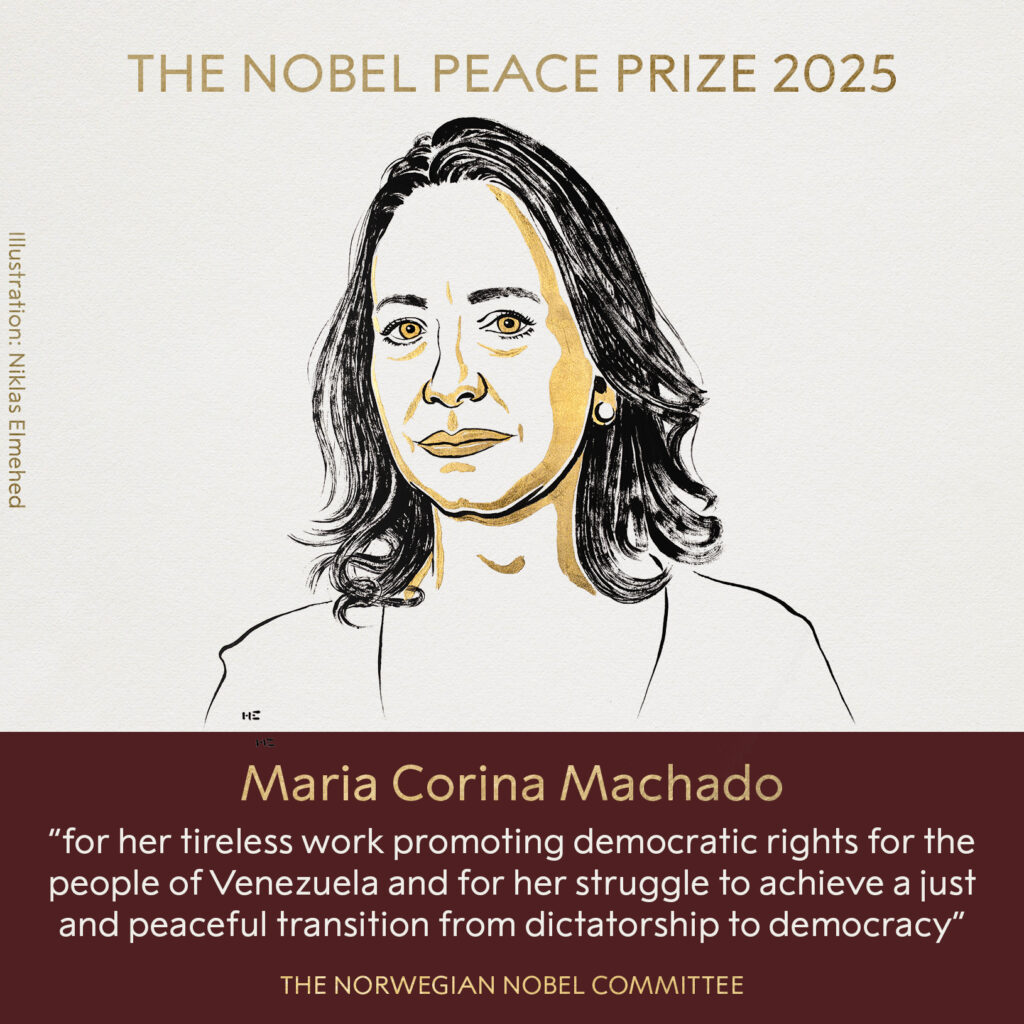
6. Nobel Prize 2025 in Economics – Joel Mokyr, Philippe Aghion and Peter Howitt
The trio behind the 2025 Economics Prize helped answer a huge question: Why do some nations grow richer and more innovative than others?
Their work connects history, innovation, and economics to show that progress does not just happen; it’s built through curiosity, risk-taking, and knowledge-sharing.
- Joel Mokyr, an economic historian, explored how scientific curiosity and technological progress sparked the Industrial Revolution and shaped modern economies.
- Philippe Aghion and Peter Howitt created the creative destruction theory, explaining how new ideas replace old ones, driving innovation but also challenging outdated systems.
Their research helps governments design smarter economic policies, ensuring countries grow while staying fair and inclusive. In simple words, they showed that the engine of progress isn’t money – it’s imagination.
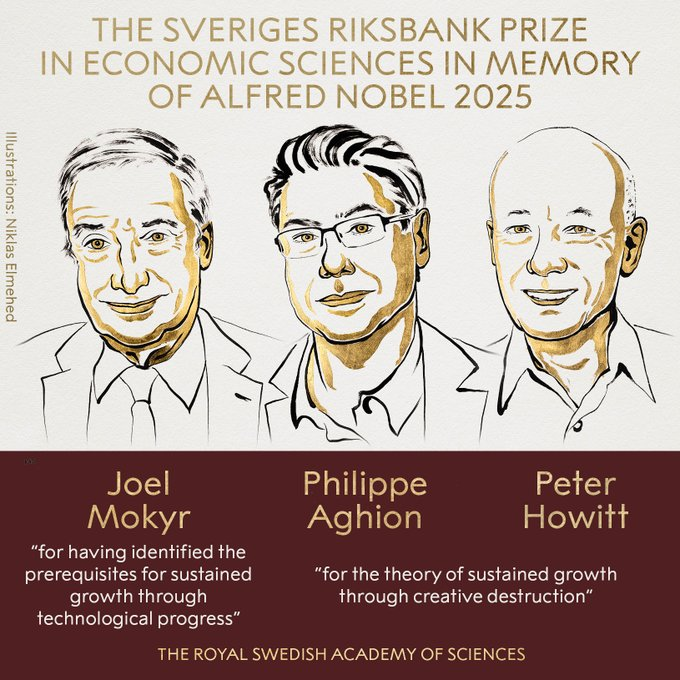
To subscribe to The Junior Age newspaper, click here!

